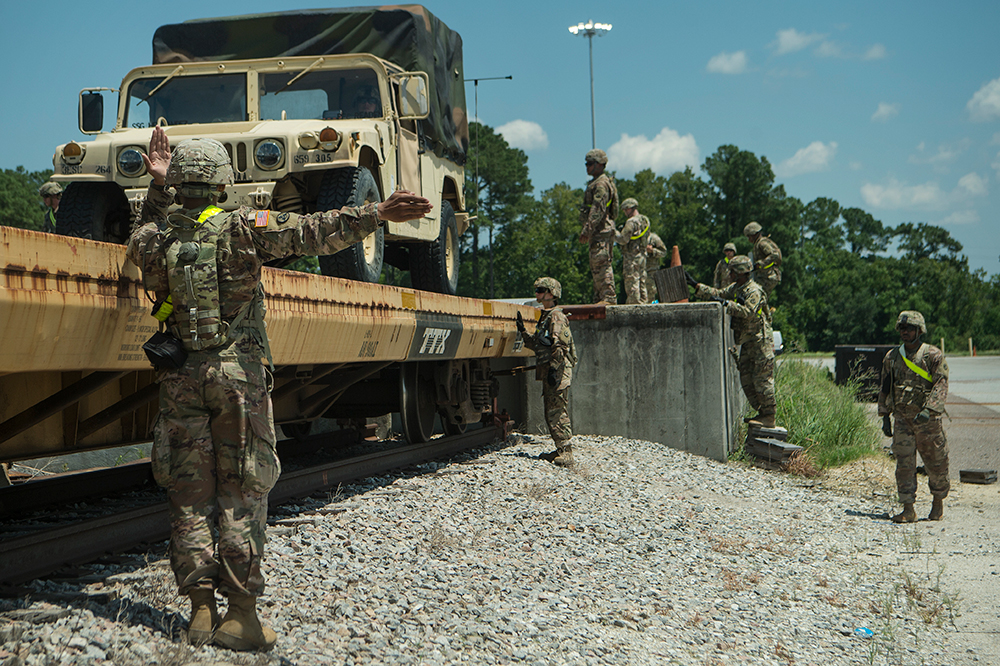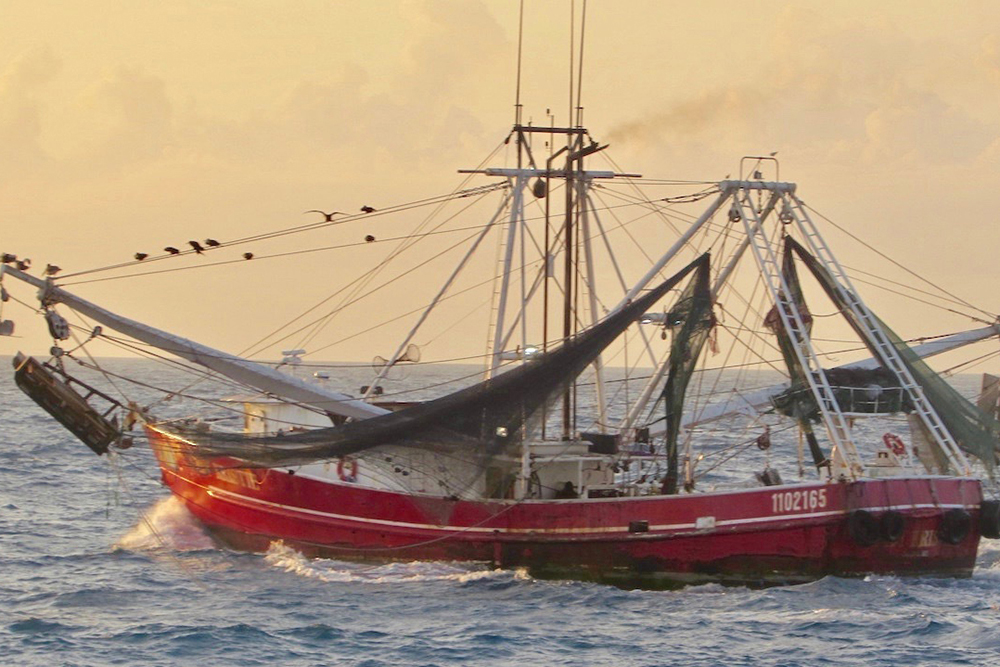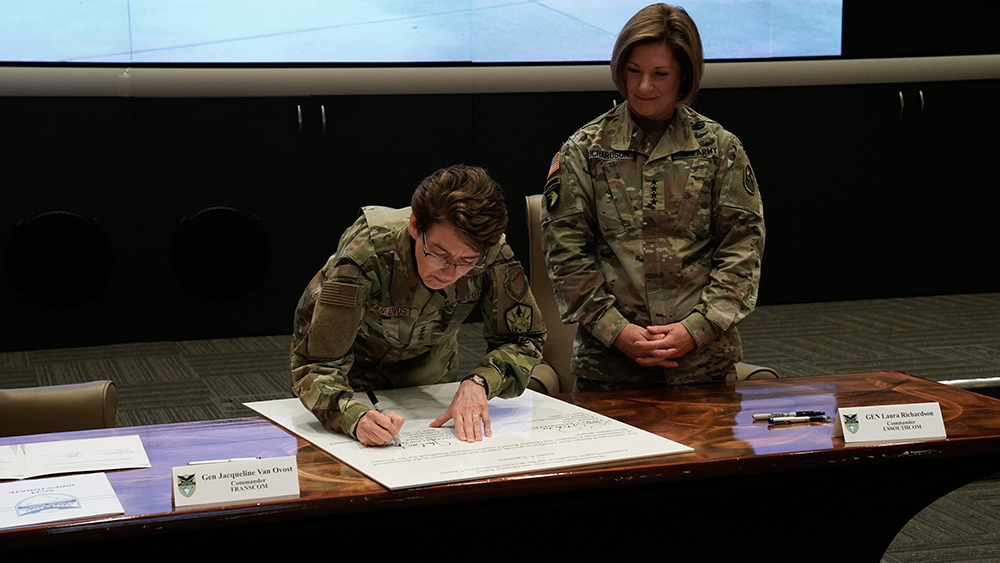U.S. Transportation Command commander Air Force Gen. Jacqueline Van Ovost and U.S. Southern Command commander Army Gen. Laura Richardson yesterday signed a charter for a regional “Humanitarian Assistance and Disaster Relief Logistics Handbook for the Western Hemisphere.”
Both commanders said the handbook will help multinational responders improve readiness in a much more timely manner that will result in more lives saved during crises such as humanitarian or natural disasters.
The two leaders spoke yesterday during an interview with defense.gov and the “Miami Today” newspaper.
The signing took place during the Senior Leader Logistics Symposium at Southcom’s headquarters in Miami, Florida, which brought together senior U.S. military leaders and representatives from 14 partner nations to discuss improving logistics cooperation and interoperability for exercises, operations and disaster relief efforts in the Western Hemisphere.
“Our teammates working logistics are the backbone of everything we do daily at U.S. Southern Command and across the Department of Defense,” Richardson said. “They support the crucial transport of personnel and vehicles, storage and warehousing of goods and materials, and distribution of much needed supplies and equipment. Without them, we can’t successfully disrupt transnational criminal organizations, assist our partners’ response to the global pandemic, aid and provide relief to disaster victims, and out compete authoritarian adversaries, like China and Russia. What they do saves lives by ensuring the success of our security operations and our regional partnerships.”
The importance of having partners in Latin America and the Caribbean is important to national and regional security, which is known as integrated deterrence, Defense Department combatant command commanders said.

Soldiers from Fort Bragg, N.C., direct a Humvee onto a railcar during Exercise Dragon Lifeline at Joint Base Charleston’s Naval Weapons Station, S.C., Aug. 7, 2019. The readiness exercise included service members from Fort Bragg; Joint Base Charleston, S.C.; and Joint Base Langley-Eustis, Va. It focused on the rapid deployment of equipment, vehicles and personnel. Participants shared knowledge and tested their efficiency in moving assets by air, land, rail and sea during the training event. © Air Force Tech. Sgt. Christopher Hubenthal
“The handbook is a boon for us, because it allows us to work directly with the allies and partners here and to standardize processes and procedures, and information sharing so that we can make the best possible use of the capacity and access around this region and so we can all achieve our mutual objectives making us stronger together,” Richardson said.
The handbook will expedite transportation throughout the hemisphere, which is good for all nations, Van Ovost said. It also will be useful for disaster assistance exercises that Transcom will participate in with partner nations.
Transcom is critical for Southcom’s ability to aid partner nations in the region because they have the requisite airlift and sealift, Richardson said. Transcom also has the ability to open a port or an airfield if existing ports or airfields have sustained damage.
Much of this aid that Transcom moves has been humanitarian, Richardson noted.

Sailors assigned to Navy Cargo Handling Battalion 1 unload Army equipment belonging to the 4th Infantry Brigade Combat Team, 25th Infantry Division, during Rapid Port Opening operations as part of a joint readiness exercise in Gulfport, Miss., Sept. 18, 2019. These operations ensure a port’s ability to rapidly open and unload military equipment anywhere in the world. © Army Pfc. Joshua Cowden
“It’s all part of the integrated deterrence, the joint force, Transcom and Southcom working together. I can’t get anywhere without Transcom,” said Richardson.
For instance, there are frequent earthquakes in the region, like in Haiti last year, as well as hurricanes like Iota, which devastated Central America in 2020. The U.S. supplies disaster relief to include rescue and recovery, as well as medical supplies and food, Richardson said.
“It’s not just about the U.S.,” Van Ovost said, referring to assistance among partner nations. “It’s also about the entire team that comes together, no matter how big or how small. It shows that unity of effort.”
Van Ovost also mentioned meddling in the hemisphere by bad actors, including China and Russia.
“In today’s environment, the neighbors of this hemisphere and our friends abroad, must continue to renew our commitment to uphold our shared values. The rise of authoritarian regimes and criminal organizations around the world seek to erode the foundation of our democracies and our democratic ideals. And they fracture the bonds between our governments in hopes of furthering their own aims,” she said.

The 83-foot commercial fishing vessel, Lady Kristie, near Tortugas Ecological Reserve, south of Florida, is shown, Feb. 21, 2019. The Coast Guard Cutter Isaac Mayo crew detected the Lady Kristie within a protected area. The U.S. Coast Guard cutter Isaac Mayo crew boarded the vessel and identified the following alleged violations: an inoperable high water bilge alarm, a lack of drills being conducted, fishing inside an ecological reserve and exceeding their tow time restriction of 75 minutes. © Coast Guard
“But what they don’t realize is that our bonds are founded on the recognition of human rights, national sovereignty and the ideals of democracy. These relationships that we have forged with each other, come through the building of trust and mutual respect, and they are not as fragile as those others may think,” Van Ovost said.






